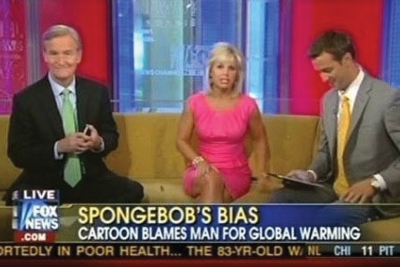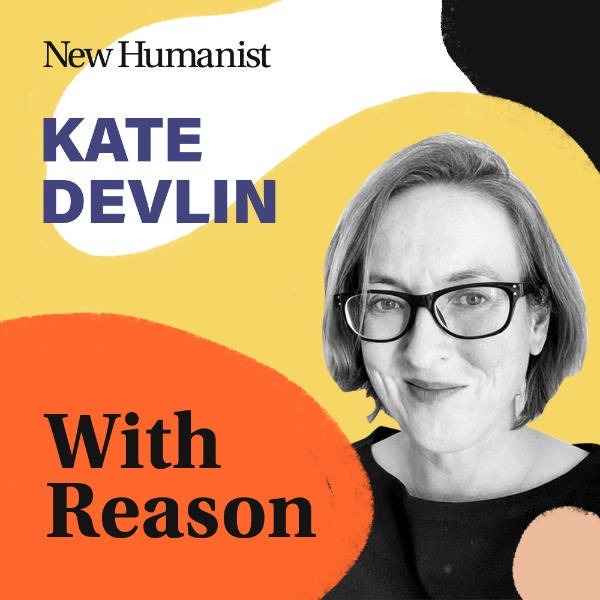
Such findings, of course, are a boon to the religious right, who use them to question why Darwin’s theory of evolution should dominate proceedings in school science classes. It’s a “controversy”, they say, and intellectual honesty demands that controversy should be taught. Of course, life may have evolved, but that’s only a “theory”. For all we know, God might have created life in the Garden of Eden 10,000 years ago. Or perhaps it did evolve, but this evolution was set in motion through some kind of “Intelligent Design”. These are the options – shouldn’t children learn them all?
The American constitution prevents the incursion of religion into public education, and time and again creationists have been foiled in their efforts to undermine the teaching of evolution in schools. A particularly decisive victory for reason came in the landmark Kitzmiller v. Dover Area School District court case in Pennsylvania in 2005, when Federal Judge John E Jones III ruled that Intelligent Design was “a mere re-labelling of creationism” that could not legally be taught as science.
But despite their defeats, the creationists have not given up. In January, the state Senate in Indiana deliberated a bill that would allow schools to teach “various theories concerning the origin of life, including creation science”. Meanwhile, legislators in Missouri have been considering a law that would require the teaching of Intelligent Design (the bill’s sponsor says “The jury is still out on evolution”), and their counterparts in New Hampshire are debating one that would “require evolution to be taught … as a theory”, with teachers obliged to draw attention to “the theorists’ political and ideological viewpoints and their position on the concept of atheism.”
For the creationists, the problem with this kind of legislation is it’s too obviously ideological. By trying to insert “creation science” into the curriculum, or making references to “atheism” as in New Hampshire, anti-evolutionists betray their religious motives, and thus the fact that their proposals are likely to violate the constitutional separation of church and state. Aware of this, some creationists have taken a new approach. Contesting evolution in schools, they argue, is not a matter of religion, but an issue of free speech. Therefore, “Academic Freedom Acts” are being prepared to protect teachers’ vital constitutional rights and enable them to “teach the controversy”. A “Science Education Act” was passed in Louisiana in 2008 which stated that “the teaching of some scientific subjects, such as biological evolution, the chemical origins of life, global warming, and human cloning, can cause controversy”. The act gave permission to teachers to “help students understand, analyse, critique, and review” those controversies. Which sounds good, until you realise that it’s an underhanded attempt to insert controversy where none exists.
By expanding their remit in this way creationists are finding new allies. In particular, by tying together “origins of life” with “global warming” around the rubric of “teaching the controversy”, these laws allow evolution denialists to make common cause with those who dispute man-made climate change. Despite the significant media exposure given to "doubt" around global warming, there is a clear and overwhelming consensus among climate scientists on the issue, confirmed for example by the work of historian Naomi Oreskes, who examined the abstracts of 928 scientific papers published in the peer-reviewed scientific literature and found that none disagreed with the consensus view that man-made emissions are causing climate change. Yet still the dissenters claim there is a “controversy” that must be taught in school science lessons. To back this up, they can point to the millions of Americans who refuse to accept that humans have altered the earth’s climate. The numbers aren’t as dramatic as for evolution, yet according to a recent Ipsos poll [PDF] 28 per cent of Americans, more than 63 million adults, remain unconvinced.
America is increasingly seeing the introduction of the “teach the controversy” line in a push to support “academic freedom”, in which evolution and climate change deniers are collaborating to challenge the scientific consensus. A bill currently on the table in Oklahoma, for example, aims to encourage “critical thinking, logical analysis, open and objective discussion of scientific theories including, but not limited to, evolution, the origin of life, global warming, and human cloning”.
Fortunately, none of this has gone unopposed. On the front line in the fight stands Dr Eugenie Scott, the mild-mannered anthropologist who directs the National Center for Science Education (NCSE), a California-based non-profit dedicated to defending science education from this kind of attack by special interests. Since its foundation in the mid-1980s, Scott and her team have worked to counter a wide range of threats to the teaching of evolution, from legislation at state level to attempts by creationists to alter regulations locally and influence teachers at individual schools. Scott herself has publically debated “Intelligent Design” advocates like William Dembski, and she served as a special adviser to the plaintiffs in the landmark Dover case in 2005.
Traditionally, the NCSE has focused exclusively on meeting the creationist challenge. But in January, in a significant expansion of its work, it announced that it would now support the teaching of climate science as well as the teaching of evolution. “Teachers are feeling the same kinds of pressures against the teaching of climate change as they have over the teaching of evolution,” Scott tells me. “They are being told to either not teach climate change, or qualify its teaching by presenting ‘both views’.” There is significant crossover between the two forms of denial, betraying their shared origins on the American right: “Anti-evolution proponents are pretty reliably anti-global-warming,” explains Scott. “There’s a providential argument that God wouldn’t let anything happen to his creation.” But the motivations differ: “With evolution denial, the motivation is religious. With climate change it’s economic and political. Climate change is framed as being an attempt by liberals to increase big government, because if the climate is changing, the steps required to mitigate it will result in more central government power. So if you fear the concentration of federal authority, you’ll reject the idea of climate change.”

Since the climate change deniers are making use of the tactics developed by anti-evolutionists, it makes sense that the NCSE is expanding its remit to meet the challenge. But what can they do? It’s a multi-front strategy, according to Scott. First they provide support to teachers – advice about how to field children’s questions, and what to do if they come under pressure from parents or school boards to teach controversy where none exists. This includes handy teaching aids containing the best reliable peer-reviewed evidence, free to download on their website.
Second, the NCSE provides a valuable public fact-checking service and independent scrutiny. For example climate change deniers, following the pattern of the creationist Discovery Institute’s list of “Scientists Doubting Darwin”, have produced a petition of 31,000 scientists who supposedly doubt man-made climate change. This document was exposed as dubious, funded by Exxon and containing the names of both dead and made-up scientists. The third vital function is to counter misinformation in the media. While Scott and her colleagues have always battled creationist arguments in public, evolution denial is largely ignored by the mainstream media. Climate change denial, however, gets significant play, especially on the right-wing Fox network.
But isn’t Scott worried that their work countering scientific misinformation will further politicise science, and leave children with a false impression that science has already made up its mind? “On the contrary, we are trying to depoliticise science. We believe that schools should teach the scientific consensus, when there is one, on evolution, climate change or any other subject. Of course the consensus changes, and when it does then education should too. Distinguishing between sound science and the implications of science is very important. The biggest controversy in relation to global warming, for example, is what should be done about it. This is a fascinating topic – which is better, a carbon tax or cap-and-trade? – but not one that we want to be involved in. We concentrate on the basics. Whatever decisions are to be made need to be supported by good science, and good decisions rely on being taught good science.”
It sounds simple, but in a climate where “freedom” is increasingly being posed against sound science, it seems likely that the battle between deniers and campaigners like Scott is only just hotting up.

